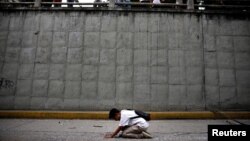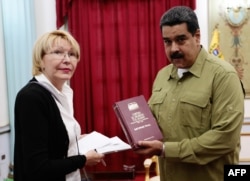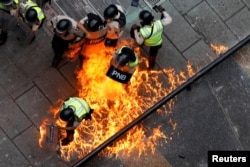President Nicolas Maduro's plan for a new popular congress to rewrite Venezuela's constitution threatens to destroy the political legacy of former leader Hugo Chavez, the chief state prosecutor said on Thursday.
Maduro, 54, who calls himself the "son" of Chavez and guarantor of his late mentor's socialist ideals, has cast the constituent assembly plan as the way to restore peace after two months of anti-government unrest that has killed 67 people.
Critics, including some traditional government supporters, have said there is no need to rewrite the constitution reformed by Chavez in 1999, and insist that a referendum should be held to determine if the country wants such an assembly.
“I think with this (assembly) we are destroying President Chavez’s legacy,” Luisa Ortega, the prosecutor who broke with Maduro several weeks ago, said outside the Supreme Court.
Call for general election
Chavez ruled Venezuela from 1999-2013, winning a plethora of elections due to his oil-fueled social welfare policies, charisma, and connection with the poor.
He is still revered by many, though critics argue that his populist policies are the base for the current economic meltdown.
Opposition leaders are calling for a general election to settle Venezuela's crisis. They have said that the assembly plan is a sham with skewed rules to ensure the socialists remain in power.
“A constituent (assembly) behind the backs of the people cannot be,” Ortega added, also denouncing the “ferocious repression” of anti-Maduro protests.
“Those opposed to the assembly are called traitors, fascists, terrorists — we cannot live in a country like that,” Ortega said.
The pro-government Supreme Court has already shot down one appeal against the constituent process lodged by Ortega, the highest-profile dissenter from within government since the protests started in April.
Two months of protests
On Thursday, she asked the court to block the constituent process put in place by Maduro and the national election board.
Opposition protesters have been on the streets near-daily for more than two months demanding elections, foreign humanitarian aid, freedom for hundreds of jailed activists, and autonomy for the opposition-controlled National Assembly.
They call Maduro a dictator who has wrecked the OPEC nation's economy. The 54-year-old president says they are right-wing “fascists” seeking a coup.
The latest fatality from the unrest was 17-year-old protester Neomar Lander, who died during clashes with security forces in Caracas on Wednesday.







